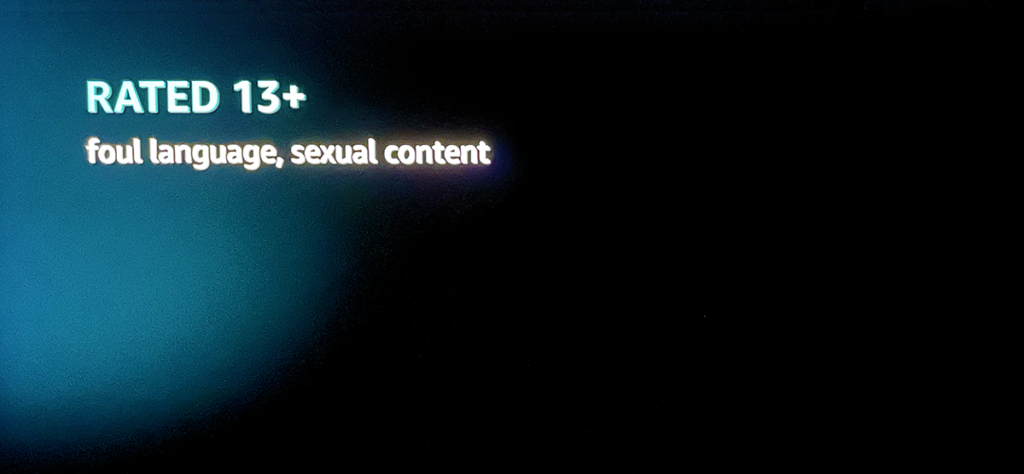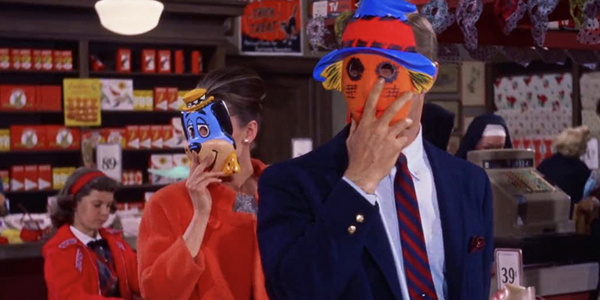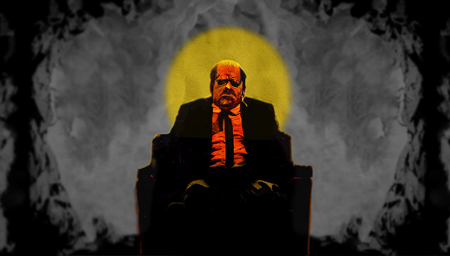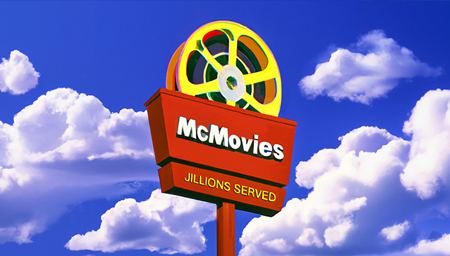
Where’s the Danger, Will Robinson?
Here’s a modest proposal: Let’s scrap movie warnings and just let people think for themselves
by Michael Gaughn
December 13, 2022
I suspect you’ll be as surprised as I was to find out there’s violence in the romantic comedy Breakfast at Tiffany’s. There’s also apparently foul language in the classic Dick Van Dyke Show episode “Coast-to-Coast Big Mouth.” And sexual content in the beyond fluffy Fred Astaire/Ginger Rogers vehicle Swing Time. The list of supposed transgressions in legendarily anodyne entertainments like these is long and adds up to a mystery as deep and baffling as the murder of the Black Dahlia. My efforts to date to ferret out moments of vile corruption in any of the above slapped have so far proven futile, but I’m still in there digging.
It would be easy to keep mustering examples but they would quickly become redundant. Take any of the above no-nos and factor it out by a few thousand and you’ll have a good idea of what’s afoot here. There’s no lack of evidence. The larger question is, who is this institutionalized squeamishness meant to serve? And is there any point in being warned off from entertainment that was never meant to offend, where any reasonable person should be able to allow for the shifting of the cultural winds, knowing even our most deeply held current strictures will inevitably fade with time, will someday be seen as being as wrongheaded as the things we so zealously damn today?
The pivot here is that whole idea of intent to offend. Most mainstream entertainment since the early ’70s has come with a strong titillation factor, which has created a masochistic mass addiction to being shocked and jolted and all-around assaulted, with all the various forms of amusement having become a symbiotic exercise in adolescent acting-out. Most movies exist to dance up to the line of too much, teasing with the notion they’ll somehow step over. This isn’t the place to discuss how antithetical all that is to anything resembling art, how each wave of transgression can only make us more callous, creating a demand for amping things up to the next level the next time around, so each successive wave becomes even more brutal and offensive, and deadening.
Given that, I suppose there is some utility in having a warning system to let you know how much of your soul you can expect to lose in exchange for being exposed to a recent film. But rather than having vague and hopelessly subjective admonishments, we should take the mania for quantification that’s made Rotten Tomatoes so popular and seemingly definitive and apply it to something actually useful—maybe some kind of graphing system that shows how often and to what intensity a film indulges in things that are mainly meant to appeal to our primate brain. (More useful still would be some kind of social-oppression index, but that’ll never happen.)
But what does all this have to do with the eras before we traded overt for covert censorship? I would contend, nothing. Which is why a warning system meant to deal with an industry that thrives on inducing and sustaining a permanent state of arrested development just seems silly and insulting when applied to any epoch pre heedless indulgence.
I get that some people get a womblike sense of security from having everything they come into contact with wrapped in warnings. But there’s something about needing to be taken by the hand before we’ll approach even the most inoffensive fare, about essentially being told what to think about it before we even experience it, that can’t help but cast a pall over legitimate creativity and helps explain the clonelike sameness of content in a world drowning in diversion.
Beyond that, constantly coddling the least intelligent, tolerant, and mature among us seems like a cynical, demeaning, and ultimately corrosive way to run a society. Admittedly, at a time when everything is a race to the bottom, warnings, in a perverse way, make some sense. But better, I would think, to start the long process of weaning ourselves from impossible guarantees and the pernicious influence of invisible judges and reclaim responsibility for what we watch and how we watch it.
Michael Gaughn—The Absolute Sound, The Perfect Vision, Wideband, Stereo Review, Sound & Vision, The Rayva Roundtable, marketing, product design, some theater designs, a couple TV shows, some commercials, and now this.
“A warning system meant to deal with an industry that thrives on inducing and sustaining a permanent state of arrested development just seems silly and insulting when applied to any epoch pre heedless indulgence”
© 2025 Cineluxe LLC





